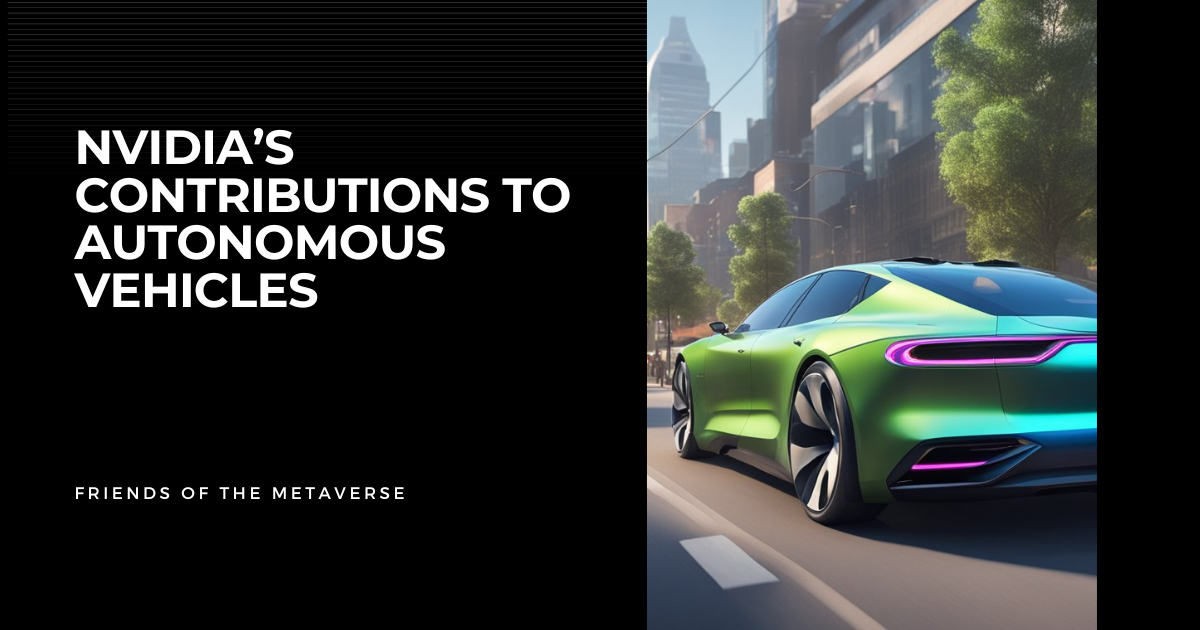IMPORTANT: This blog was created with the assistance of artificial intelligence and has undergone further review and editing by our editorial team to ensure accuracy and compliance with relevant standards.

Predictive Analytics with AI
Predictive analytics with AI empowers businesses and organizations to move from reactive to proactive stances by foreseeing outcomes and optimizing processes based on data-driven foresight. AI-enhanced predictive analytics turns vast amounts of raw data into actionable insights, allowing decisions to be made with greater confidence. For instance, in retail, AI can forecast future buying patterns through analysis of past customer behavior, enabling companies to tailor their inventories and marketing strategies to meet anticipated demands.

AI-Driven Data Analysis: Tools and Techniques for Enhanced Business Insights
AI-driven data analysis leverages machine learning algorithms and cognitive computing to turn data into actionable insights, fostering data-driven decision-making across various sectors. These tools and techniques are engineered to recognize patterns, predict trends, and provide enterprises with an edge in strategic planning. They imitate human intelligence but operate at a scale and speed unmatchable by manual analysis. Organizations implementing such AI tools benefit from enhanced accuracy in forecasts, optimized operations, and personalized customer experiences.

The Importance of Data Quality in AI Systems: Enhancing Model Performance and Reliability
Data quality anchors the effectiveness of AI systems. Ensuring high accuracy and performance in artificial intelligence hinges on the integrity of the underlying data. AI models are developed and trained using datasets, and the precision of these models directly correlates with the quality of data they are fed. Accurate and comprehensive datasets lead to more reliable AI predictions and decisions, establishing a solid foundation for AI applications across various industries.

Optimizing Data Processing with AI: Enhancing Efficiency and Accuracy
The integration of artificial intelligence (AI) into data processing workflows marks a significant advancement in technological capabilities, offering a host of benefits geared toward optimization, efficiency, and performance. AI models, with their complex algorithms, are adept at handling vast and varied data types, including text, audio, images, and video. As data processing demands intensify, AI-driven systems emerge as the solution to overcome the limitations inherent in legacy CPU-based computing, which include data bottlenecks and escalating data center costs.

Big Data and AI
Big Data and artificial intelligence (AI) share a powerful, symbiotic relationship that is rapidly transforming the landscape of analytics and decision-making. Together, they represent a convergence of capabilities, where vast quantities of data provide the material for AI to learn and enhance its capabilities, while AI contributes sophisticated techniques to analyze and draw insights from this data. This partnership enables more efficient processing and interpretation of complex datasets, leading to advanced analytics such as predictive modeling and augmented analytics that can inform and automate business decisions.

NVIDIA's Role in the Evolution of AI Technologies
NVIDIA has become synonymous with the rapid advancement of artificial intelligence technologies. Once recognized primarily for its graphics processing units (GPU) catering to the gaming industry, NVIDIA's strategic pivot towards AI has marked a significant turning point for the company. Its GPUs, renowned for their parallel processing capabilities, have proved to be remarkably effective for running the complex computational tasks required for AI applications, making NVIDIA a cornerstone of AI innovation.

NVIDIA’s Breakthroughs in Computer Graphics
NVIDIA has consistently been at the forefront of revolutionizing computer graphics, developing technologies that have become essential in various industries, from gaming to professional visualization. With a strong foundation in GPU design, NVIDIA's commitment to innovation has allowed the company to turn pivotal breakthroughs in AI into practical tools that enhance and accelerate the creation and rendering of digital imagery.

Understanding NVIDIA’s Omniverse and Its Impact on Collaborative Simulation and Design
NVIDIA Omniverse is a comprehensive platform designed for virtual collaboration and real-time, physically accurate simulation. It caters to creators, designers, researchers, and engineers by providing a shared virtual space where tools, assets, and projects can interconnect seamlessly. Developers and software providers leverage the platform to build and sell extensions, which enhance the functionality and adaptability of Omniverse to specialized workflow requirements.

NVIDIA’s Contributions to Autonomous Vehicles
NVIDIA has been a pivotal force in advancing self-driving car technology, positioning itself as a key player in the automotive industry's transition towards autonomous systems. Their expertise in graphics processing units (GPUs) has led to significant strides in the processing power required for the complex tasks that self-driving cars must perform, such as image recognition and decision making. By leveraging its experience in GPU development, NVIDIA has created specialized platforms and solutions that propel the capabilities of autonomous vehicles, making them smarter, safer, and more efficient.

How NVIDIA’s AI Factory is Revolutionizing Industries
NVIDIA is at the forefront of revolutionizing various industries with its AI factory initiative. This transformative approach harnesses the power of artificial intelligence to dramatically enhance efficiency and innovation in data centers. Through collaborations with leaders in the computing space, NVIDIA's technology facilitates the creation of AI-powered factories, aimed at meeting the skyrocketing demand for AI services while aiming to minimize their environmental footprint. By leveraging advanced AI, industries from manufacturing to healthcare are experiencing a surge in productivity and the development of new capabilities that were previously unattainable.

Introducing Blackwell: NVIDIA’s Latest GPU Innovation Unveiled
NVIDIA has consistently driven innovation in the realm of graphics processing technology, and with the unveiling of the NVIDIA Blackwell platform, they are once again poised to redefine what's possible in computing. The introduction of Blackwell marks a significant leap forward for the industry, particularly in the domain of generative AI. It's a platform designed to empower organizations to develop and deploy large language models with unprecedented efficiency, touting a notable reduction in both cost and energy consumption compared to previous generations.

Inside DGX Systems: Pioneering the Future of High-Performance Computing
High-performance computing (HPC) is experiencing a transformative shift with the advent of NVIDIA's DGX Systems, a suite designed specifically to meet the unique demands of artificial intelligence (AI) and deep learning. DGX architectures provide enterprises with powerful infrastructure, allowing for the acceleration of AI-powered insights at scale. They stand at the confluence of HPC and AI, embodying the next step in the evolution of supercomputing by harnessing the capabilities of graphics processing units (GPUs).

AI in Environmental Sustainability: Pioneering Solutions for a Greener Future
Artificial intelligence (AI) is becoming an indispensable tool in the quest for environmental sustainability. With the capacity to analyze vast datasets and identify patterns beyond human capability, AI is opening up new avenues for combatting the world's most pressing environmental issues. It is supporting a wide range of applications, from optimizing energy use in buildings to enhancing the precision of climate change models. AI's ability to process and interpret environmental data is leading to more informed decision-making and effective resource management, significantly contributing to the sustainability efforts of societies worldwide.

AI in Entertainment: Transforming Immersive Experiences and Personalization
Artificial Intelligence (AI) has become a fundamental pillar in the transformation of the entertainment industry. As it seamlessly integrates into various platforms, AI empowers creators to design more engaging, personalized, and immersive experiences for audiences. Innovations in this field range from sophisticated algorithms curating content tailored to individual preferences to the deployment of virtual reality (VR) and augmented reality (AR), which have revolutionized audience engagement with entertainment content.

Revolutionizing Manufacturing with AI: Boosting Efficiency and Innovation
Manufacturing is undergoing a transformation, with artificial intelligence (AI) at the forefront of driving productivity and spurring innovation. AI in manufacturing isn't a new concept, but its application has reached new heights with the latest advances in machine learning, robotics, and data analytics. Manufacturers who integrate AI technologies are positioning themselves at a competitive advantage. AI-driven automation, for instance, allows for the streamlining of manufacturing processes, reduces the time and labor required for repetitive tasks, and increases production speed, while maintaining or enhancing quality.

Revolutionizing Education with AI: Personalized Learning & Teaching Efficiency
Artificial intelligence is rapidly becoming an integral part of the educational landscape, transforming traditional teaching and learning models. With the ability to analyze vast amounts of data and adapt to individual learning styles, AI in education offers potential for personalized learning experiences that were previously unattainable. As educational institutions embrace these technologies, students and educators alike are finding new ways to improve engagement and educational outcomes. This incorporation of AI tools is shaping a future where education is more accessible, inclusive, and tailored to meet the diverse needs of learners.

AI in Retail: Elevating Customer Experiences with Personalized Smart Technology Integration
The retail industry is undergoing a significant transformation, driven by the advent of artificial intelligence (AI). Retailers are now embracing AI to offer personalized customer experiences that meet the heightened expectations of today's consumers. By leveraging AI, retailers can analyze vast amounts of data, understand individual customer preferences, and tailor services to match. This level of personalization is setting new benchmarks in customer satisfaction and loyalty, positioning AI as a critical factor in the competitive retail landscape.

AI in Finance: Enhancing Precision, Productivity, and Market Strategies
Artificial intelligence (AI) is revolutionizing the finance industry by bringing significant improvements to operational efficiency and accuracy. In a sector where precision and speed are paramount, AI technologies, especially machine learning algorithms, have been instrumental in streamlining complex processes. From risk assessment to fraud detection and investment management, AI systems provide financial institutions with the tools to process vast amounts of transactional data at unprecedented rates, reducing human error and enhancing decision-making capabilities.

AI in Healthcare: Transformative Applications Revolutionizing Modern Medicine
Artificial intelligence in healthcare is rapidly becoming a critical driver of innovation, fundamentally altering the landscape of medicine. It offers a range of transformative applications that promise to enhance the quality of care and improve patient outcomes. By leveraging patterns in medical data, AI tools can assist in diagnosing diseases with higher accuracy, predicting patient outcomes, and customizing treatment plans to an individual’s specific needs.

Future Trends in Accelerated Computing: Next-Generation High-Speed Processing
Accelerated computing is transforming the landscape of artificial intelligence (AI) and deep learning, offering unparalleled processing speed and efficiency. By leveraging powerful computing architectures, such as Graphics Processing Units (GPUs), AI algorithms can process vast amounts of data at speeds previously thought impractical. This technology is critical in driving innovation across various industries including healthcare, where it plays a pivotal role in drug development and personalized medicine strategies.
